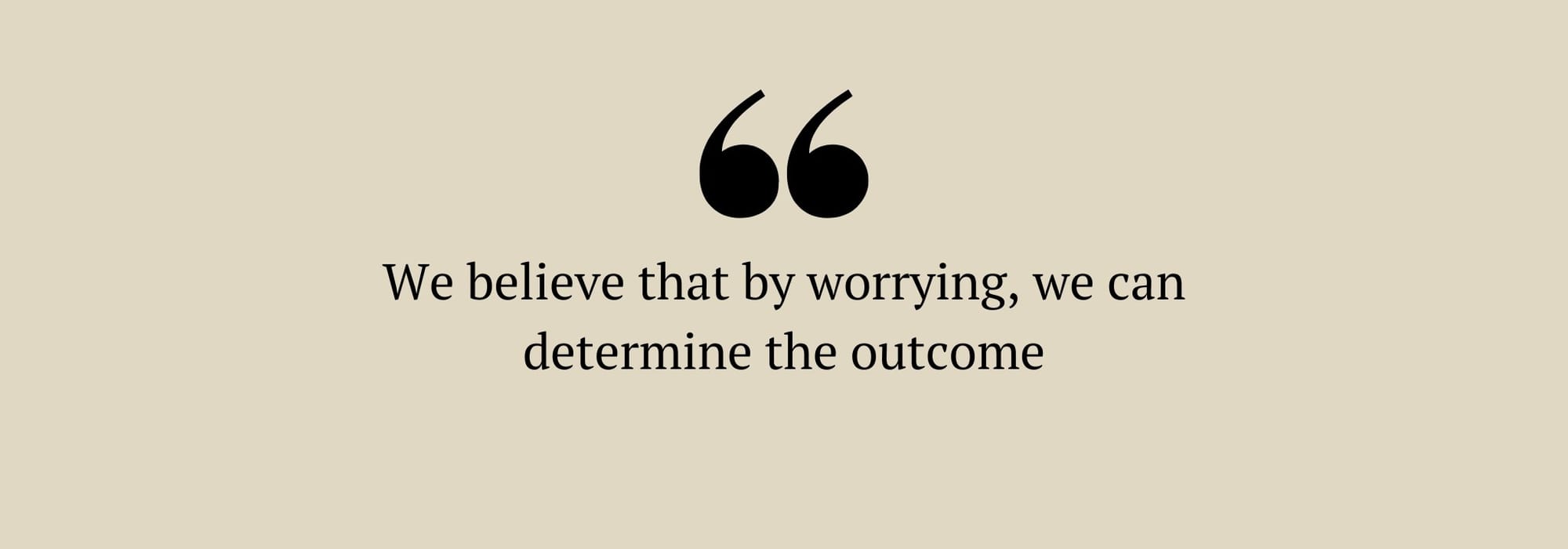Do you often find yourself worrying about the future? Does it steal you away from the present moment? Here, we explore four techniques for managing worry, today
How often do we worry about tomorrow, next week, next year, even our old age? Before we know it, our minds have run away with us, dredging up worst-case scenarios of the future.
Why do humans tend to do this? We can spend hours ruminating and worrying about things that are outside of our control, and might never even happen. Karin Peeters is a coach and psychotherapist with some good advice about coming back to the present. When it comes to getting frank about worry, she says: “We believe that by worrying, we can determine the outcome. It gives us an illusion of control over the situation, while it is actually outside our sphere of influence.’’
We have been given 24 hours in a day, a small portion of time that is under our control. What if we simply focused on that? What if we just did what is in our power to do today, and left tomorrow’s worries for another day?
Taming a wild mind full of worries may sound easier said than done – and, sometimes, help and support from professionals is needed to get to the root cause of anxiety. However, there are some small practical steps you can take to ease the stress and focus on today. Here are a few tips.

A today list
Instead of a to-do list, what about writing a today list instead? This way you can focus on the tasks that you are actually able to do today, rather than feeling overwhelmed by enormous tasks that you don’t have time for.
Roughly sketch out your day, with the tasks you can fit in. Be realistic about what you have time for, rather than trying to do much.
If there’s something big that needs to be tackled, is there a small bite-sized step that can be done today? No matter how tiny, it is a move forward. This can help make things manageable, while also avoiding procrastination.
For example, if your house is a mess, what little task can you add to your today list? It could be just cleaning the kitchen counter, or the oven, or dusting the surfaces. Everything else can be ignored!
Karin recommends using the ‘urgent-important’ matrix. This concept comes from US President Dwight Eisenhower who once said in a speech, “I have two kinds of problems: the urgent and the important. The urgent are not important, and the important are never urgent.”
Karin explains how the method works: “For each task, check if it is urgent or not. Then check if it is important or not. In this way, you’ll get four categories. Focus on what is urgent and important. Schedule time ahead for what is important, but not necessarily urgent.’’
Mañana
In Spanish, the term ‘por la mañana’ is used for something that can wait for the next day. Tomorrow will be another day, you’ll be rested, with a new level of energy. What might feel overwhelming today might feel easy tomorrow. It’s OK to write a tomorrow list! Write down all the things that are occupying your mind, but can’t get done today. Put your list aside, read it tomorrow, and see if it seems manageable. You can use it to craft your next day’s ‘today list’, or it can be put off again for another time entirely.
Focused worry time
Sometimes our minds insist on worrying about the things that are outside of our control.
How can you tame your mind? One way is to spend some time focusing on the thoughts that demand your attention.
“Create designated worry time. When we assign a certain amount of time to worrying, let’s say 10–15 minutes (definitely no longer than 30 minutes), we can let our thoughts run wild and really go for it,” says Karin. “You can do so every day, at a similar moment in your daily routine, and give yourself full permission to worry in that scheduled time frame. Ideally, write the worries down. When worries pop up during the rest of the day, you can tell yourself, ‘I am setting this aside for my designated worry time’, and then you can get on with what needs to be done in the moment.’’

It’ll be all right in the end
A worry is not necessarily a sign that things are going to end badly. Can you remember a time when you were concerned about something that ended up being all right in the end? Maybe it was hosting a party and worrying nobody would turn up, being terrified you would fail an exam, or heading into a job interview.
Journal about any times like these you can remember. How did you feel beforehand, and how did you feel after? These journal entries can be read and reread to reassure yourself of the many times when you worried and yet everything was OK in the end.
Sometimes our worries do stem from trauma from the past, or from a present-day crisis. There are times when concerns are very genuine and can’t be packaged up neatly with a bow and left for another time. Journaling, or talking with a therapist, can help to untangle feelings and decipher what is a genuine concern, and what can be put aside.


Comments